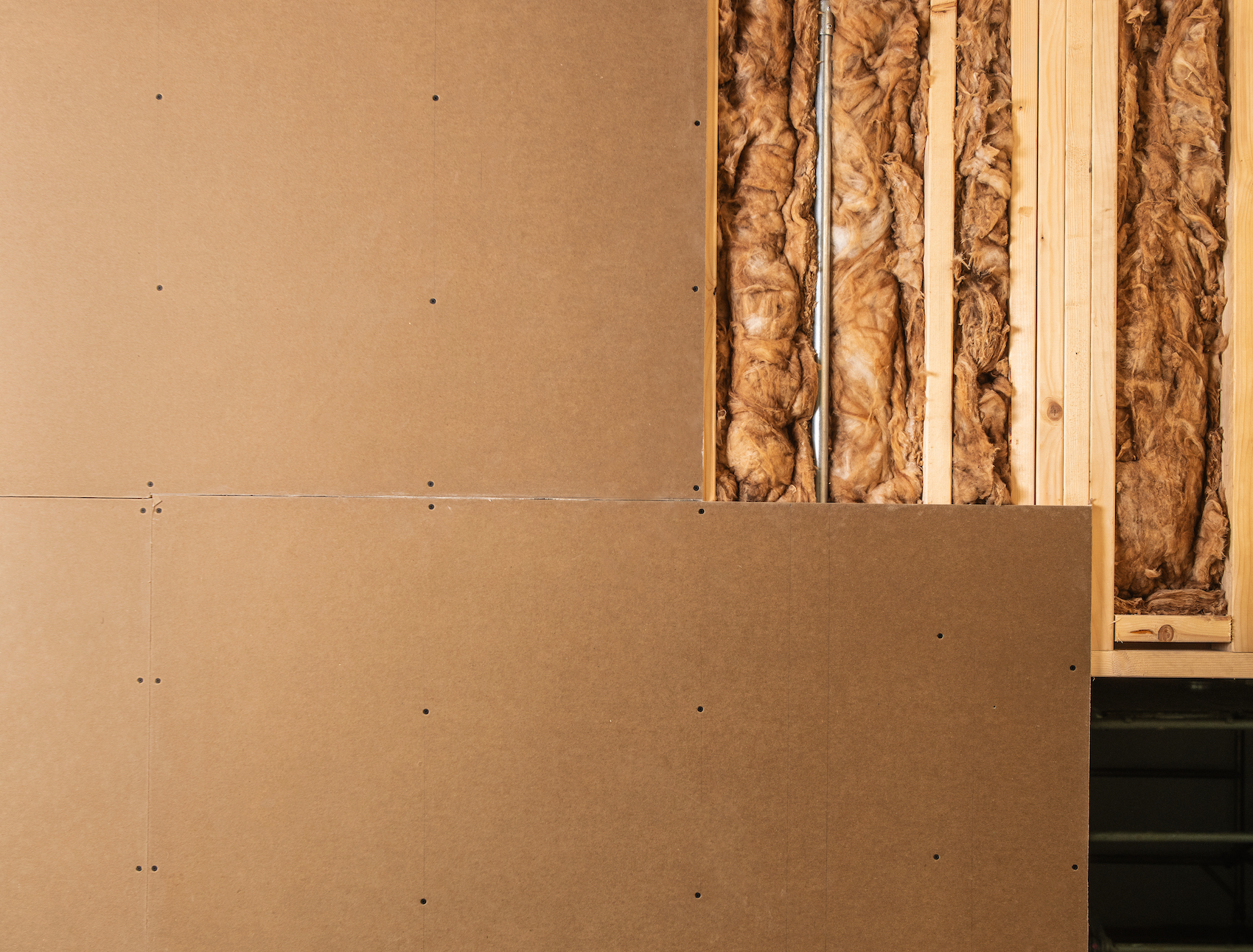Adaptavate has partnered with British Land, Royal London Asset Management Property, and Overbury to install and monitor the performance of its low-carbon alternative to plasterboard, Breathaboard, at 1 Triton Square in London. The trial aims to drive much-needed innovation in the construction industry so it can decarbonise quickly enough to achieve net zero targets.
Developed over the last ten years with Adaptavate’s patented technology, Breathaboard is a drop-in solution to reduce CO2 emissions and waste in the wallboard market and the built environment. The product is a natural, scalable, carbon sequestering alternative to plasterboard, one of the most widely used construction products.
Made with renewable agricultural feedstocks and waste, Breathaboard absorbs CO2, and has 50 per cent less embodied carbon than its competitors. It can save up to 4kg of CO2/m² in a market of around 13bn m2 capacity¹. Furthermore, through this industry defining partnership and project, the product is proven to be installed in the same way as plasterboard. This is part of Adaptavate’s vision of creating industry defining innovations that help the construction sector decarbonise without changing the way buildings are renovated or constructed.
This announcement follows recent news that Breathaboard meets wallboard industry standards after being independently tested. The trial at Triton Square, the first on a large-scale commercial site, will provide Adaptavate with the last key proof point needed to ensure the product meets the demands of modern construction and is ready for commercialisation.
Tom Robinson, founder and CEO at Adaptavate commented, “Adaptavate’s mission is to make low-carbon and carbon-negative building products available to all, globally. This partnership is a demonstration of how different players across the construction industry can work together to accelerate industry changing innovations, paving the way for their deployment and playing a key role in the much-needed decarbonisation. It is a dream come true for a former builder turned business builder – a real route to planet positive construction.”
Tim Downes, Development Director at British Land said, “Our collaboration with Adaptavate to trial Breathaboard at 1 Triton Square, part of our Regent’s Place campus, reinforces our commitment to reducing embodied carbon through efficient design and material reuse. As we deliver a world-class science and technology building that sets new standards in sustainability, partnerships like this are essential to driving innovation in the circular economy. This trial not only supports the adoption and scalability of the groundbreaking technology but also aligns with our vision for a more sustainable built environment.”
Adaptavate will monitor Breathaboard’s performance at Triton Square over the coming months. In the meantime, the company is in conversation with different manufacturers and potential partners to speed up the scalability and adoption of its climate positive technology and products across the globe.
For more information, please visit the Adaptavate website.
¹ Breathaboard has a saving of approx. 4 Kg CO2 equiv. of GWP per m2 (compared with a standard board from one of the main players in the UK plasterboard market), when measured using the standard defined by EN 15804 +A2 and counting the biogenic storage of our bio aggregate (3 Kg/m²). All calculations are developed through an Adaptavate proprietary tool which has been independently verified by the Building Research Establishment (BRE) Group. This tool not only calculates GWP but also environmental, energy and resource use parameters for in use impacts.
Source: Architecture Today





